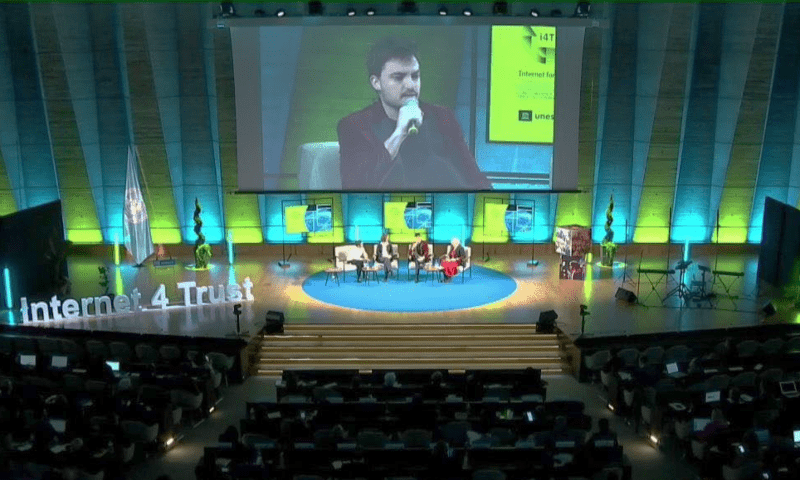Hundreds of officials, tech firm representatives, academics and members of civil society were invited to the two-day meeting at a global UN conference in Paris, France, who urged the international community to find better ways to safeguard against online disinformation and hate speech.This conference, by the UN’s cultural fund, held mainly to brainstorm ways to ensure safe social media usage while maintaining the human rights, freedom of speech and democracy.
Unesco Director-General Audrey Azoulay said that since digital platforms have changed the way we connect and face the world, the way we face each other. So, fully evaluating this technological revolution can only save us from a revolution that does not compromise any basic rights.
Filipina investigative journalist Maria Ressa, a Nobel Prize winner in 2021 for exposing abuses under former president Rodrigo Duterte, said that social media has manipulated us in a number of ways over so many years. What we are required to do in this scenario is that we must focus only on content moderation. So that we clean up the water in the polluted river and then dump it back for safe usage. Although, this clean-up campaign has received much hatred, nevertheless Ressa is going strong on taking up this challenge and resuscitate the river.
Brazil’s President Luiz Inacio Lula, who addressed the conference in a letter, after a face-off with the disgruntled supporters of his predecessor Jair Bolsonaro on Jan 8, in Brasilia, said that whatever malign activity happened that day was due to a campaign that initiated lies and disinformation. He furthur added that this campaign, on such a larger extent, was nurtured, organised, and disseminated through several digital platforms and messaging apps. In this on-going situation, Facebook whistleblower Christopher Wylie contributed by saying that this must stop. The international community needs, from now on, to work to give effective answers to this challenging question of our times.















